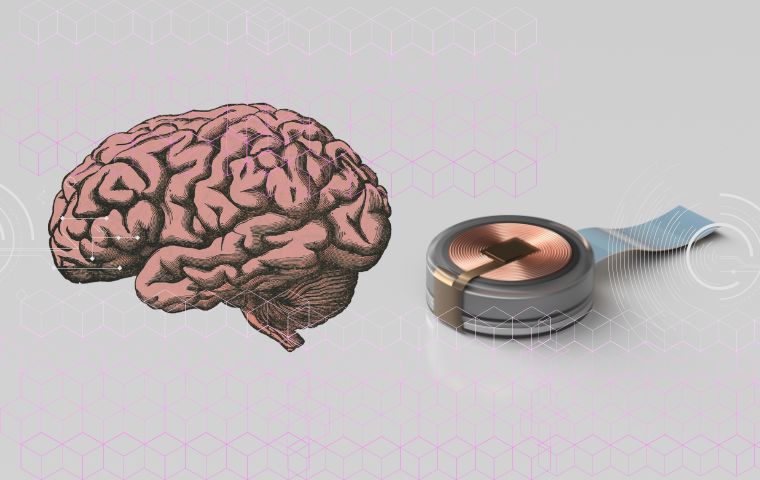The New Era of AI in 2025: From Gemini 3 to Creative AIs
Learn about the best AI tools for 2025, including Nano...
We use cookies for our website to give you the most relevant experience by remembering your preferences. By clicking “accept”, you consent to use of ALL the cookies
This website uses cookies to improve your experience while you navigate through the website. Out of these, the cookies that are categorized as necessary are stored on your browser as they are essential for the working of basic functionalities of the website. We also use third-party cookies that help us analyze and understand how you use this website. These cookies will be stored in your browser only with your consent. You also have the option to opt-out of these cookies. But opting out of some of these cookies may affect your browsing experience.
Necessary cookies are absolutely essential for the website to function properly. These cookies ensure basic functionalities and security features of the website, anonymously.
| Cookie | Duration | Description |
|---|---|---|
| cookielawinfo-checkbox-functional | 11 months | This cookie is set by GDPR Cookie Consent plugin. The cookie is used to store the user consent for the cookies in the category “Analytics”. |
| cookielawinfo-checkbox-functional | 11 months | The cookie is set by GDPR cookie consent to record the user consent for the cookies in the category “Functional”. |
| cookielawinfo-checkbox-necessary | 11 months | This cookie is set by GDPR Cookie Consent plugin. The cookies is used to store the user consent for the cookies in the category “Necessary”. |
| cookielawinfo-checkbox-others | 11 months | This cookie is set by GDPR Cookie Consent plugin. The cookie is used to store the user consent for the cookies in the category “Other. |
| cookielawinfo-checkbox-performance | 11 months | This cookie is set by GDPR Cookie Consent plugin. The cookie is used to store the user consent for the cookies in the category “Performance”. |
| viewed_cookie_policy | 11 months | The cookie is set by the GDPR Cookie Consent plugin and is used to store whether or not user has consented to the use of cookies. It does not store any personal data. |
Functional cookies help to perform certain functionalities like sharing the content of the website on social media platforms, collect feedbacks, and other third-party features.
Performance cookies are used to understand and analyze the key performance indexes of the website which helps in delivering a better user experience for the visitors.
Analytical cookies are used to understand how visitors interact with the website. These cookies help provide information on metrics the number of visitors, bounce rate, traffic source, etc.
Advertisement cookies are used to provide visitors with relevant ads and marketing campaigns. These cookies track visitors across websites and collect information to provide customized ads.
Other uncategorized cookies are those that are being analyzed and have not been classified into a category as yet.
Cyberia Tech, Inc. respects your privacy. This Privacy Policy explains how we collect, use, and share your information. By using our services, you agree to this policy. If any other agreements conflict with this Privacy Policy, the terms of those agreements prevail.
Cyberia Tech complies with the EU-US and Swiss-US Privacy Shield Frameworks for handling personal data from the EEA, UK, and Switzerland. In case of any conflict, the Privacy Shield Principles prevail. Learn more at Privacy Shield. Key Definitions
Information linked to an individual, transferred from the EEA, UK, or Switzerland to the U.S.
Data revealing race, religion, health, sexual orientation, and similar categories.
Effective Date: [ 2026 / 01 / 22 ]
Welcome to The Cyberia Tech ! By accessing or using our website or services, you agree to
comply with and be bound by these Terms of Use and our Privacy Policy. If you do not agree with
these terms, please do not use our Services.
Loading
0 %

Neuralink approved Elon musk’s brain implement for human testing. People are worried about the billionaire’s track record and whether Neuralink can responsibly manage the development of this invasive device.
Elon Musk’s company which develops brain implants has received approval for testing on humans. How concerned should we be? The creation of a device that invades privacy.
Table of Contents
In recent days, Neuralink, a brain-implant company founded by Elon Musk, received regulatory approval to begin the first clinical trial of its experimental device in humans.
However, people have become concerned about the billionaire executive’s exaggerated promotion of the technology, his past leadership at other companies, and the animal welfare issues associated with Neuralink experiments.

Laura Cabrera, a neuroethicist at Penn State’s Rock Ethics Institute, expressed her surprise regarding the US Food and Drug Administration’s decision to allow the company to proceed with clinical trials.
Cabrera argues that Musk’s unpredictable leadership at Twitter and his fast-paced approach to technology raise concerns about Neuralink’s ability to responsibly oversee the development of a medical device that can read brain signals.
She asked if he would view a brain implant device as something that needs both additional regulation and ethical consideration. Will he view this as just another gadget, or will he take it seriously?
There are many other companies working on brain interface devices, and Neuralink is one of them. For many years, research teams from all over the world have been studying the potential use of implants and devices to help treat conditions like paralysis and depression.
Currently, there are already thousands of people benefiting from neuroprosthetics such as cochlear implants, which help improve hearing abilities. However, experts have expressed skepticism about the wide range of capabilities that Musk is promising with the Neuralink device.
Neuralink started in 2016 and created a brain-computer interface (BCI) called the Link. It’s a computer chip with electrodes that can be sewn onto the brain’s surface. This chip connects the brain to external electronics. Neuralink also made a robotic device to implant the chip.
According to John Donoghue, a neuroscientist at Brown University who led the team that created the brain-computer interface called ‘BrainGate’ to help paralyzed individuals regain movement, the design seems to utilize a unique type of electrode.

According to Musk, Neuralink’s device has the potential to be used for various therapeutic purposes, such as treating conditions like blindness, paralysis, and depression.
However, he has also mentioned that the ultimate goal is to develop a device for the general public. This device would allow users to directly connect their minds to supercomputers, enabling humans to keep pace with artificial intelligence.
He has also mentioned that the device might be able to eventually capture and save thoughts, like a “backup drive” for your non-physical self, your digital soul.
The FDA approval is a positive step toward conducting a human clinical trial. However, there are still uncertainties regarding the specific details of the study, such as its scope, focus, and design.
The FDA applications and approval processes are not accessible to the general public. Neuralink, being a private company, is not obligated to inform investors about its regulatory interactions.
According to Neuralink’s website, they are looking for individuals who have conditions such as paralysis, blindness, deafness, or difficulty speaking. However, the company did not provide any additional information in response to the Guardian’s inquiry.
According to a spokesperson from the FDA, Neuralink has been approved for an investigational device exemption (IDE). This means that Neuralink can now be used for clinical studies.
It is also unclear when this trial would occur. The company should create a review board to review and oversee the research.

According to a report from Reuters, the FDA initially rejected Neuralink’s request for clinical trials in 2022 due to several issues that the company needed to address. However, the FDA has now approved Neuralink’s request after these concerns were resolved.
Based on the news agency, there are some safety concerns regarding the implant’s lithium battery and the possibility of overheating. There are also questions about whether the small wires of the device could move to other parts of the brain.
Additionally, it is important to note that the device cannot be removed without causing damage to the brain tissue.
It is not clear how these concerns were resolved. The FDA did not provide specific comments on Neuralink’s application process, but a spokesperson mentioned that the agency follows a thorough and scientific process to assess the safety and effectiveness of medical devices.
She also mentioned that the FDA is dedicated to ensuring that animals involved in testing are treated responsibly and humanely.
Neuralink has chosen not to provide any information regarding its plans for clinical trials at this time.
Musk’s track record of mishandling user data at Twitter raises concerns about his company’s ability to handle highly sensitive data retrieved from potential clinical trial participants, according to both Johnson and Cabrera.
“There are some ethical concerns about privacy whenever you use a brain device,” Johnson added. “Things to consider include: will Neuralink have access to the brain data of the people in whom these devices are implanted?” What plan do they have for it? And how will they secure user privacy?”
Neuralink did not answer to queries about how it intends to manage trial participants’ data.
Musk’s marketing distinguishes Neuralink from other BCI firms and teams at public institutions that have concentrated on deploying the devices to treat specific medical diseases such as seizures, Parkinson’s tremors, or paralysis.

The market for “neuromodulation devices,” which record or stimulate brain activity, has exceeded $6 billion.
Another BCI maker, Synchron, gained an FDA license in July 2021 to test brain implant technologies, while Blackrock Neurotech, which installs brain implants that allow patients with paralysis to manage digital gadgets and prosthetics, has been conducting human studies for more than a decade.
What are brain implants called?
Brain implants, sometimes called neural implants, are technological devices that attach to or are surgically implanted into the brain of a living organism.
Rapid progress is being made in the area of brain-computer interfacing. Neuralink, Elon Musk’s brain implant startup, obtained clearance from the FDA last month to begin human testing. Paradromics, its main competitor, is even further along in development.
Neuralink would have to first demonstrate the safety of Elon Musk’s brain implement before determining its efficacy in treating certain illnesses.
“The technology to implant something in the brain is very mature, but where to put it in the brain and how to stimulate it is still being worked out, especially for complicated diseases,” he explained.
Musk’s promotion of the Neuralink device echoes his intentions for Twitter, which he purchased for $44 billion in 2022, and has pledged to transition to an “everything app” that can answer all users’ requirements at the same time.
You Can Get More Information!
